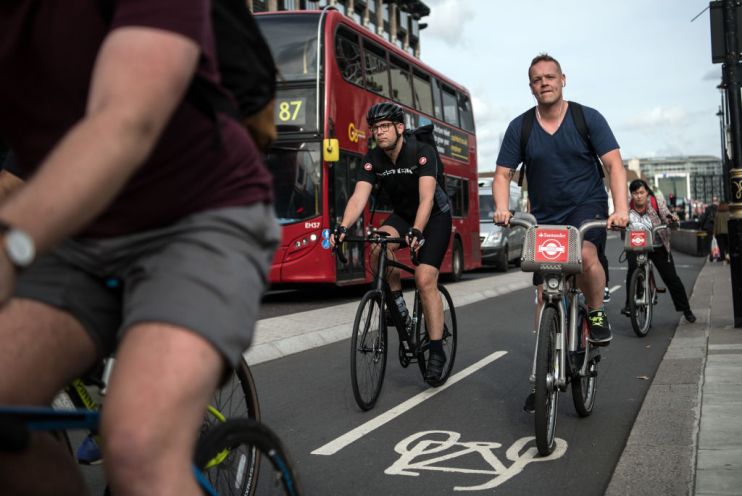Cyclists hit back at accusations of turning London into a congestion nightmare

Charity Cycling UK has hit back against traffic information supplier Inrix linking the increase in cycling lanes to London becoming the most congested city in the world.
“Inrix is focused on the tarmac available for cars, when the question should be how we use and allocate that space better, changing travel behaviours and reducing congestion in the process,” said Cycling UK’s head of campaigns Duncan Dollimore.
Inrix told PA the numerous bike lanes installed last year to encourage active travel during the pandemic have led to Londoners spending in 2021 an average of 148 hours in traffic. Compared with pre-Covid times, congestion rates in London have gone down 1 per cent – less than in other big cities across the world.
According to Inrix’s director of operations Peter Lees, bike lanes have had a “negative impact on congestion” in the capital.
“Use of roads is all about supply and demand,” he told PA. “If the demand goes up but the road space is being shared with other forms of transport, there’s less tarmac effectively for the cars to be on, which then has an impact on the speeds on the road and therefore congestion.”
Cycling UK hit back against Lees’s comments, calling Inrix’s estimates “incredibly simplistic.”
“On Blackfriars Bridge, cycle lanes take up 20 per cent of the road space but move 70 per cent of the people across it at peak times, with cycle lanes across London moving more people more efficiently in less space,” Dollimore said.
The head of campaigns’ words were echoed by Will Norman, London’s walking and cycling commissioner, who blamed congestion on vehicles.
“Decades of credible research shows that cycling, walking and public transport are key to reducing traffic and pollution in cities,” he said.
“Our long-term approach to managing congestion in London is focussed on reducing car use and making the best use of the space we have by prioritising the most space and energy efficient modes of transport.”
With an average of 140 hours lost in traffic, Paris ranked second and was closely followed by Brussels, Moscow and New York – with 134, 108 and 102 hours lost in 2021.